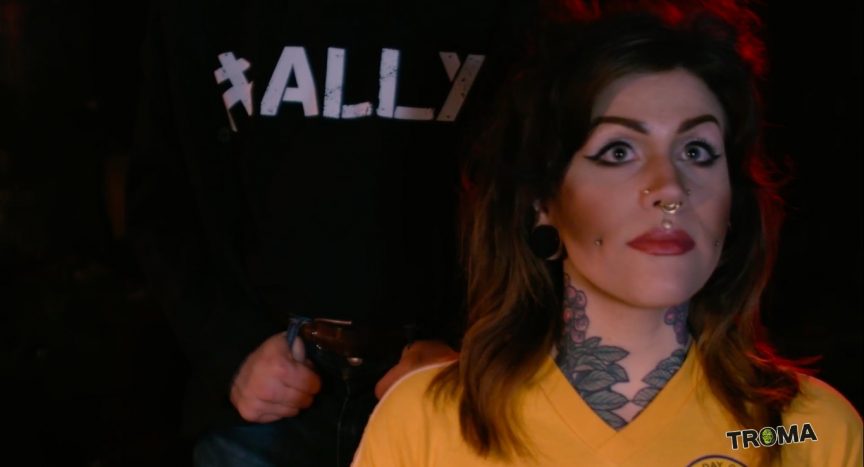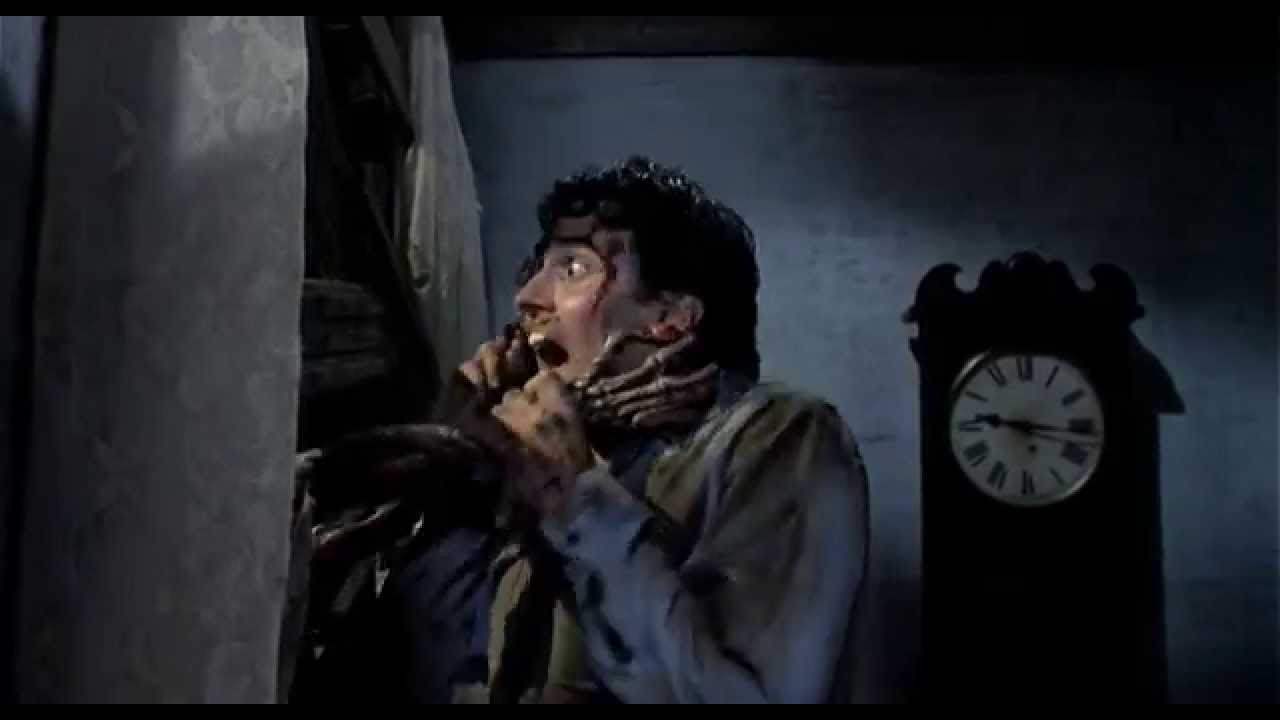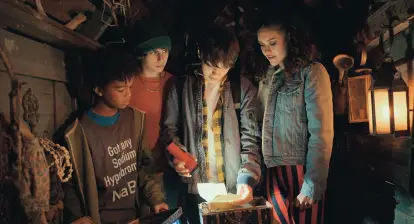It doesn’t really matter if you didn’t see 2015’s The Slashening — its half-decade late sequel Slashening: The Final Beginning works just as well as a standalone movie as it does a part deux. Like all Troma movies, it’s a film that feels wildly uneven at times, but it nonetheless comes together as a satisfying whole — complete with some truly interesting (and refreshingly subtle) subtext on modern day gentrification that might whizz by you if you’re too busy gagging over all the jokes about deformed genitalia.
Six Horror Sequels With Subtle References You May Have Missed
The cold opening of the film gives viewers a quick verbal recap of the events that transpired in part one. Of course, barely 10 minutes into the picture and we already have a body count nearing the double digits, as a gaggle of stereotypes — i.e., the gay couple that hasn’t quite figured out the fundamentals of “docking” quite yet and the heterosexual couple that never get around to actually bumping uglies because they keep asking each other if the encounter is consensual — all get dispatched in bloody, over-the-top ways. From there, we’re reintroduced to the surviving “final girl” heroine from the first film, who has recently joined a support group for other one-dimensional slasher movie survivors. As expected, it’s only a matter of time until that cannon fodder gets reduced to knifed up human jerky, including an amateur jug blower for a Neutral Milk Hotel-ish faux-folk hipster rock band that may very well be the first character in film history to get ukuleled to death on screen.

Believe it or not, Slashening: The Final Beginning does try to play itself off as a straight “whodunit,” with pretty much every member of the cast a probable axe murderer. The trade off there, unfortunately, is that most of the supporting cast comes off as blandly one-dimensional — indeed, some only have a few lines and seconds of screen time before getting butchered, blistered and beheaded for such unforgivable offenses as, uh, not sharing their weed and making bad wine puns?
Around the 40-minute mark of the movie, Slashening: The Final Beginning decides to slightly shift gears, with the script eschewing the sight-gag-reliant splatstick humor for some more cerebrally-daunting sociological satire. In one scene, a buncha’ pinot-sipping, TikTok-obsessed larval-stage Karens threaten to barrage a black business owner with a bevy of negative Yelp reviews for cutting off their service. In another scene, this glaringly Anglo-Saxon “male feminist” publicly molests an unimpressed, inked-up female bargoer, constantly “apologizing” for his misogynistic behavior yet refusing to stop. And without giving away the big twist ending, rest assured writer/director Brandon Bassham definitely has something to say about modern-day gentrification in America’s major metropolitan nexuses — satire or not, our heroine’s battlecry of “nobody wants to hear stories about poor people” in The Final Beginning’s climax certainly conveys a graver, harsher tone than you might anticipate from what is superficially a goofy horror parody.

The mixture of subversive urbanite politics and traditional Troma tropes — yes, in case you were wondering, the film does include at least one topless dancer sequence and a scene involving a mutilated phallus — isn’t a perfect recipe, with some jokes falling extremely flat and some gross-out segments going on far too long. Nor is the dizzying “experimental” camerawork from Bassham that appetizing — indeed, there’s one split-screen scene that’s so confusing, it’s almost impossible to make sense of who’s supposed to be involved in the mayhem. But those not-exactly-major-but-not-quite-minor quibbles aside, I felt that The Final Beginning is a much better than average horror comedy than the hokey title suggests. The ensemble cast is good, the setwork is decent, the dialogue is (largely) punchy and you really can’t complain about the gore quotient in this thing at all.
Horror Tie-In Toys We Can’t Believe Actually Got Made
Yes, it feels formulaic at times, but considering how formulaic serious slasher movies are, I suppose that just comes with the territory. I wouldn’t say anything in The Final Beginning is riotously funny, but it’s got a couple of clever lines here and there and at just an hour and 20 minutes in length, it does move along at a steady, brisk pace. Still, it would’ve been nice to see the film take things a step or two further with its hipster scum must die motiff, or at least expound a bit on its anti-gentrification ethos. As it is, though, I’d feel confident considering Slashening: The Final Beginning to be one of the better slasher spoofs to come down the pipes over the last few years or so. Granted, it’s no Boogeyman: The Rise of Leslie Vernon or Student Bodies, but it’s worlds better than stuff like Wacko and all those Saturday the 14th movies, for sure.
Wicked Horror Rating: 7 / 10
Director(s): Brandon Bassham
Writer(s): Brandon Bassham
Stars: Jean Louise O’Sullivan, Addie Weyrich, Justin James Lang, Marcus Bishop-Wright
Release Date: April 30
Studio/Production Company: Troma
Language: English
Run Time: Approximately 85 minutes
Follow us on social media: Twitter, Facebook, and Instagram!







